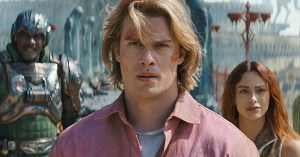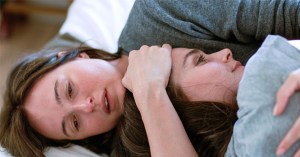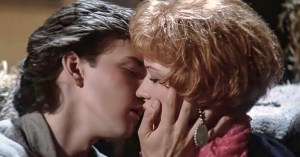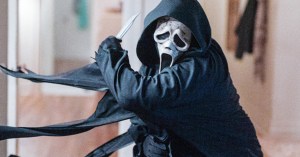Know Your Critic: Robert Daniels, Freelance Film Critic
Daniels talks what he’s been watching while quarantined, describes the work he finds most challenging, and shares his love of ambitious filmmaking.

(Photo by Buena Vista Distribution Company, Netflix, Walt Disney Pictures)
Since becoming a Tomatometer-approved critic in 2018, Robert Daniels has written for some of the most popular film- and culture-centric sites out there. No matter where he’s writing – RogerEbert.com, Polygon, his own site (812filmreviews), or Rotten Tomatoes, where he recently traced Ben Affleck’s career and deemed him one of the best actors of his generation – Daniels’ voice consistently resonates as both approachable and incisive. Reading his work feels like having a conversation with an exceptionally witty, thoughtful friend, one who seems to have read and watched just about everything out there.
“I’m lucky, I write pretty fast,” Roberts said in an interview with Rotten Tomatoes. “Usually the first draft is basically the draft.”
But it’s not for lack of effort. He goes in cold to screenings so that his opinions are fresh, jots down minimal notes to keep his eyes on the screen – unless he’s not enamored of what he sees (“I can always tell when I don’t like a film because I will actually long hand write my reviews while I’m watching,” he said) – and does all his background research before sitting down to write.
“It’s not something that you can just fall out of bed and do,” Roberts said of writing reviews. “Things are easiest when you feel like you have all the answers around you and you just have to order all the elements together in a cohesive way.”
Robert Daniels is a freelance film critic based in Chicago, IL. Find him on Twitter: @812filmreviews.
What have you been watching during quarantine?
It’s been a mixed bag. I’ve been heavy on Criterion Channel. They had a lot of noirs, so I watched a film called The Sniper, if I remember correctly. I’ve been watching a lot of new releases, like The Old Guard, The Beach House, Relic, some of the recent stuff. I rewatched First Cow for the first time in a while. I loved that film so much. I saw it at the New York Film Festival and I was waiting for it to come out so everyone else could see it – I love Kelly Reichardt‘s work.
What do you think makes a good movie?
I don’t think I can give an answer to that. I know what I personally like, but I don’t equate personal evaluation with universal, with greatness, anything. Some films that I hold dear to my heart – Cats, Cloud Atlas, Jupiter Ascending – those are movies that probably a good number of people wouldn’t call “great.”
I personally gravitate toward creatives who take risks; even if they don’t stick the landing, I love the ambition. So, I know what makes a great movie for me. Great movies always arise from the unlikeliest of places.

(Photo by Criterion Collection)
What do you consider required viewing?
The Passion of Joan of Arc, the silent film version, that’s always an oldie but a goodie. I think when people watch silent films, they automatically think that silent films are lesser than current sound films, whether visually or narratively. But that film, just every portion of it, it’s a study in editing. It’s a study of pathos and empathy and the narrative just works. It’s classic. The story of Joan of Arc, I don’t think has ever been done better than that film, which – all these decades later – is saying something.
What are you most proud of in your career so far?
I wasn’t really one of those kids who watched the films growing up and thought, “Oh, I’m going to be involved with that one day.” Movies weren’t really a big part of my childhood, whether going to them or owning them on VHS because my parents just didn’t have the disposable income for that. So, the only escapism I had was really books from the library.
In my childhood, I bounced around from my grandmother to my aunt’s house and for a time, I was homeless and we didn’t really have enough money to buy stuff like movies. I knew of Siskel and Ebert – they were Chicago institutions. But the idea that I, a Black kid from the west side of Chicago who’s probably partly destitute… The idea that I could become a critic never entered my mind.
And so, when I got to high school, I did a lot of catching up to fill blank spots with films that people had grown up with, but I hadn’t. And so, it took years before I had the confidence to undo any intellectual shortcomings I told myself that I had, because I didn’t vacation in whatever country. I didn’t have whatever major experience and see such-and-such movie title. That seed of inadequacy never leaves you. So, every day you feel like you have to prove yourself. I think that’s why I love movies so much today, because I didn’t have them when I was growing up.
The fact that I’m even doing this is what I’m proud of.
What do you think is the biggest misconception about critics?
That our reviews and the pieces that we write are born out of an ether. I think in the purest sense, we’re always providing our opinion, and opinions can be made up of internalized values with regards to quality and interest. But, I think we couple that prior knowledge with research.
I always find it interesting that when someone comments on one of my reviews, they’ll be like, “Did you look up this? Did you look up that? It’d be really helpful if you read this.” And it’s like, well, I did my research before I wrote it. I didn’t just jump off a trampoline.

(Photo by Universal Pictures)
Do you have a favorite book-to-film adaptation?
That’s easy: Alfonso Cuarón’s Children of Men. I love the adaptive work for that film mostly because he throws the book out. Because of fanbases today, there is this fear that you have to show some fidelity to the original work. And, I think some of the most interesting adaptations are the ones that throw away everything and go down a different road.
Who is an under-the-radar director or screenwriter that you think more people should know about?
Sarah Gavron. She did Suffragette, and her first film was This Little Life. I watched her newest film Rocks, which hasn’t been released yet, but it played at TIFF this past year. Her stories are just so specific, but they’re built out in a way that they’re entities, intimate worlds that are separate from our own experiences and yet they feel universal.
What is the hardest review that you’ve ever written?
That’s hard because so many things have different valuations. My first thought would be, I did a listicle about the top 20 black director films of the decade for Consequence of Sound. I would say listicles are harder than they seem because if you do them right, you have to do rewatches. You have to do research. You have to have introspection and put them in the context, everything like that. And they can actually be, if you do it right, they could be difficult.
Any personal cultural piece that I write based around race is always difficult just because those pieces tend to either deal with Black Lives Matter or they deal in trauma. I’m always happy that I can write about those kinds of subjects and give them a wider voice. They take a lot out of me, mostly because it’s confronting things that are buried and they’re buried for a reason.
Writing about trauma, it’s not like rolling out of bed. There are some days when even rolling out of bed is a difficult act. I don’t know, it’s difficult because you feel like you have to speak for a community. At least, I feel like I have to speak for a community. And, that’s a dangerous trap to fall into when you feel like you’re speaking for more than yourself. When I’m writing these pieces, the tight rope always feels higher and the fall feels bigger and that’s a terrible place to write from. Words should begin with their importance to you.
The John Boyega Star Wars piece for Polygon was pretty challenging. I had one of the best editors with Matt Patches, and he was just fantastic. And, I kept trying to run away from giving definitions or from taking things down to their simplest terms because I was afraid what those definitions would say. But Matt, to his credit, pushed me – and through all of his queries, the piece ended up with what I wanted to say and not the easy way I wanted to say it.
Honestly, when that piece got released, I thought, “Oh my God, the Star Wars fandom is really toxic. I’m going to get ripped apart.” And then, I woke up and then I saw John Boyega was doing the protest through the streets of London. And I was like, “Oh my God, perfect timing.” It was phenomenal timing.

(Photo by Buena Vista Distribution Company)
What’s a Rotten film you love?
Oh, Reign of Fire. I love Reign of Fire. I love mythology. That’s not like a mythological movie, but it does have a mythological beast with dragons. It’s over the top and it’s Matthew McConaughey at his peak – shirtless Matthew McConaughey era – and Christian Bale in his grumpy cat era. I love every component of it. It’s a film that I definitely don’t think got a fair shake on its first time out.
Is there an actor or a director or screenwriter whose work you always love?
The first person who pops in my mind is Barry Jenkins. I love all of his work from Medicine for Melancholy, to Moonlight, to If Beale Street Could Talk – all those works. He just does them from such a personal place and you would think something so personal wouldn’t feel universal, and yet it does. Not only does it feel universal, but it feels personal to me watching it and his eye and his taste for colors and the way that he films Black skin. He’s just amazing. That’s probably not the most inventive answer, because I’m pretty sure a lot of people say Barry Jenkins, but it’s the best answer I can give.
What’s your favorite classic film?
8 1/2 by Federico Fellini. I think that was probably the moment where I realized that I am very much into ambitious directors and Federico Fellini very much obviously sticks the landing. The amount of surrealist stuff that he does in there… I watched it when I was a freshman in college and that was probably the first movie where I looked at it and I thought, “Oh, that’s what auteur theory is. That’s what it means to have a singular vision and to translate it to the screen. That’s what it means to take risks.”
Who are three people that you think everyone should follow on Twitter?
Soraya McDonald (@SorayaMcDonald). More than great movies, I love great writing. And her style – the way she expresses historical inequities and the way she puts it in such a compact style that breathes very easy, the knowledge and context comes across incredibly swiftly – I’m always amazed by it.
Joi Childs is another critic (@jumpedforjoi). Her interviews for The Hollywood Reporter are – they just all read incredibly. They’re all approachable and she accesses a personal side to celebrities that’s hard for most people. I usually envy her for that skill.
Roxana Hadadi (@roxana_hadadi). I can’t understand how she finds so many angles and new approaches to recent and past films that I would struggle to think of. Being frank: I just love the way her mind works.
Is there a non-critic in your life whose opinion you admire?
My mom, she is the universal barometer. If a movie plays well with her, then I know it plays well with anybody. Usually, if my mom really, really, really likes something – even if it’s something I think I’ll hate – I’ll take a look at it.
Robert Daniels is a freelance film critic based in Chicago, IL. His reviews have appeared at RogerEbert.com, The Playlist, Consequence of Sound, Polygon, and Mediaversity Reviews, among others. Find him on Twitter: @812filmreviews.





